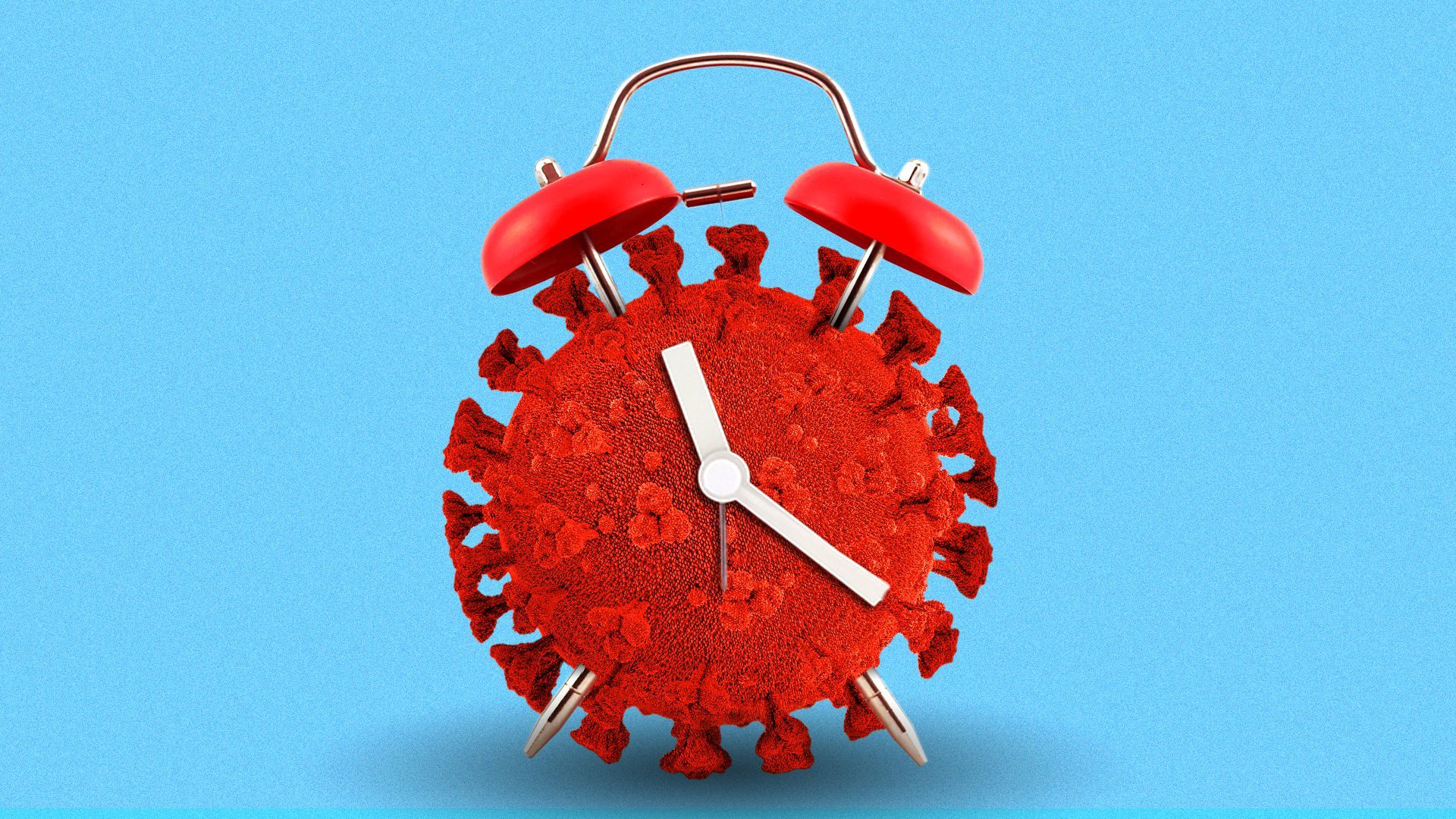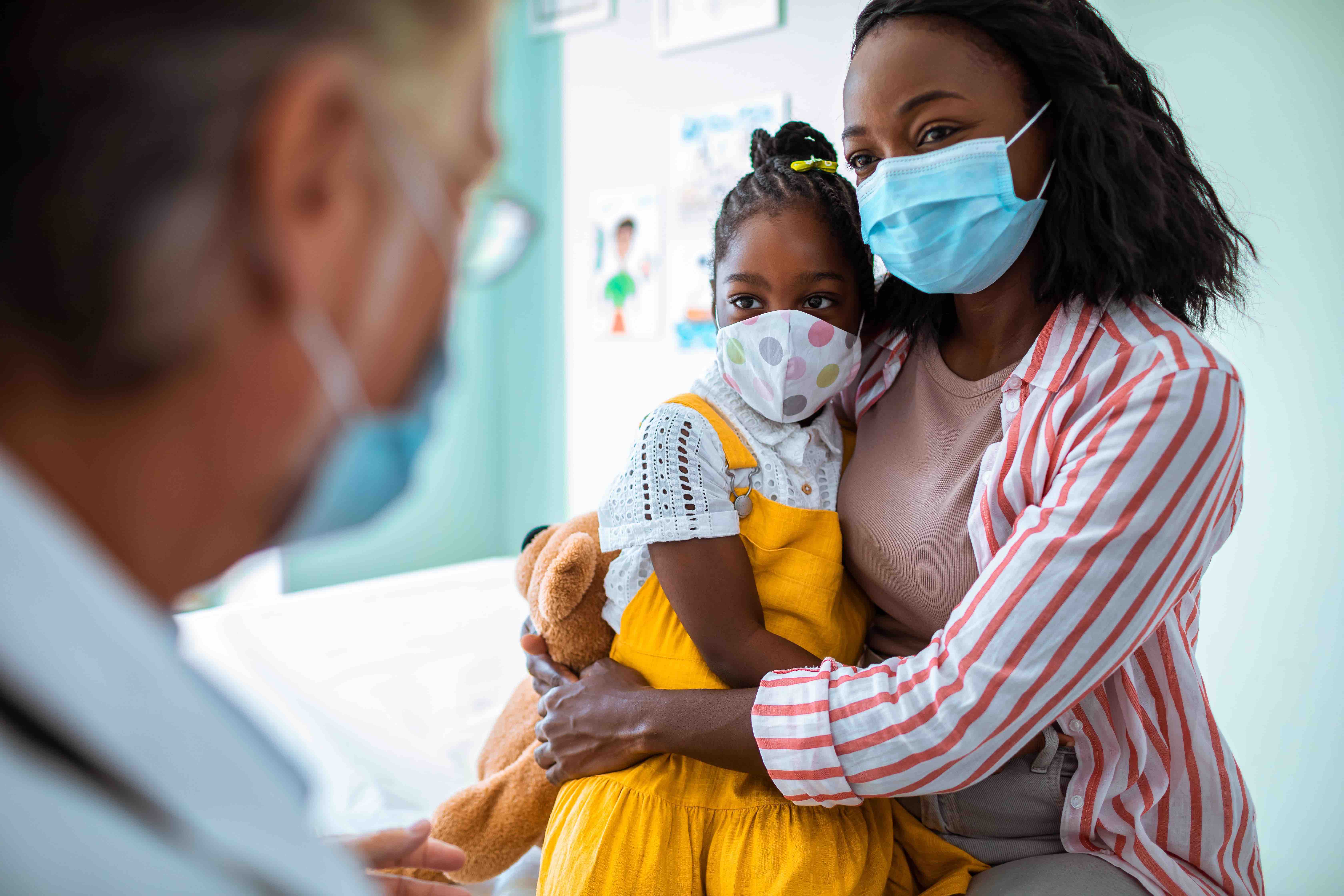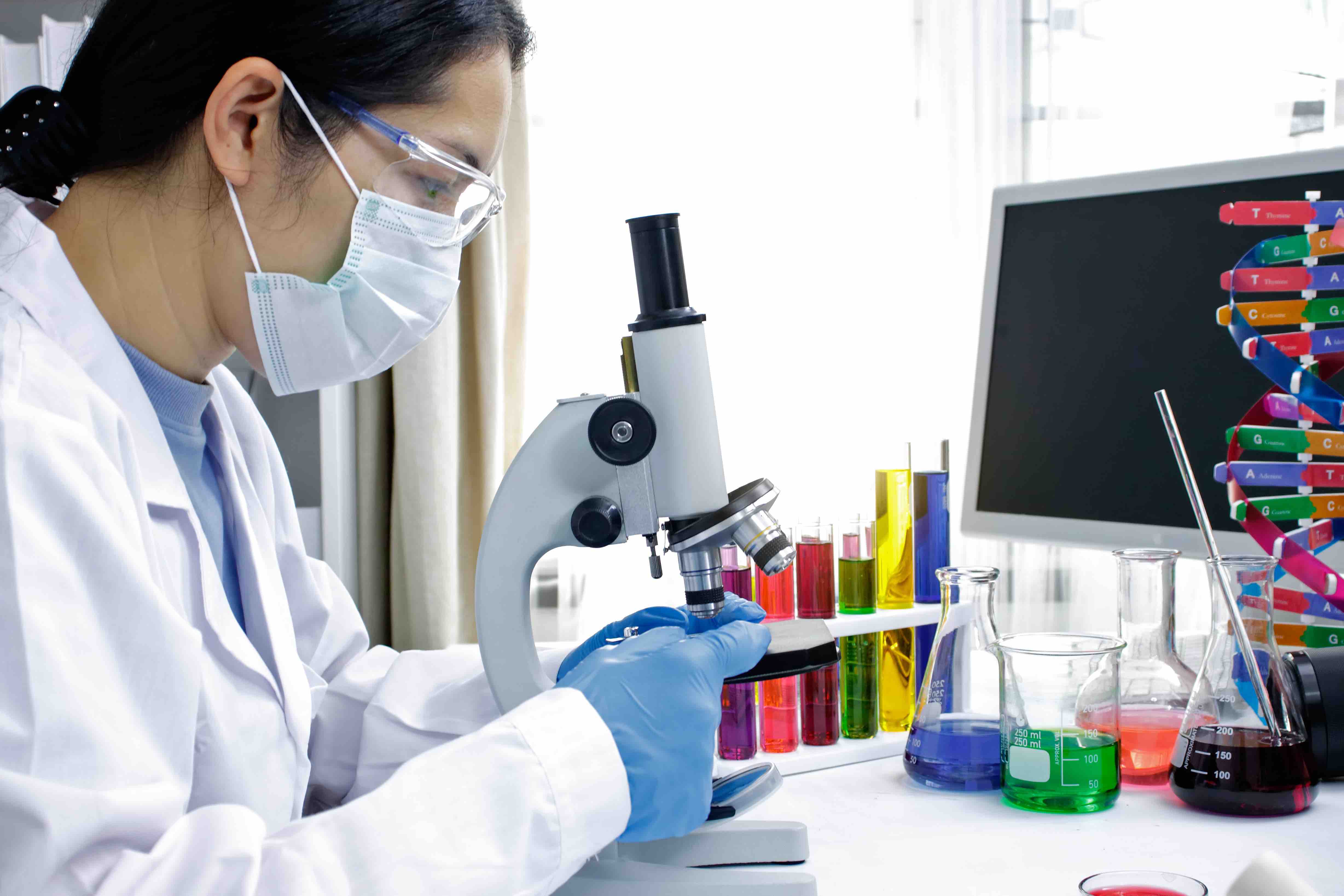| | | | | | | Presented By PhRMA | | | | Vitals | | By Caitlin Owens ·Mar 16, 2021 | | Good morning. Today's word count is 1,092, or a 4-minute read. | | | | | | 1 big thing: Why COVID patients aren't getting a promising treatment |  | | | Illustration: Annelise Capossela/Axios | | | | Only a minority of patients are receiving some of the most promising coronavirus treatments. Why it matters: COVID-19 is almost certainly going to be part of our lives for a long time, even with high vaccination rates. Antibody treatments could make it much less deadly — but only if patients get them. Driving the news: Two still-unpublished studies found that two specific antibody therapies can prevent hospitalization and death among high-risk people with mild or moderate COVID-19 infections, Nature reports. - An antibody developed by Vir Biotechnology and GSK reduced the likelihood of hospitalization or death among clinical trial participants by 85%.
- The second, an antibody cocktail developed by Eli Lilly, reduced the risk of hospitalization and death by 87%.
Yes, but: Only about one in every six or seven coronavirus patients eligible to receive antibody treatments are actually receiving them, said Janelle Sabo, who leads COVID-19 therapeutics at Lily. - That's an improvement from December and January, when only one of every 20 to 30 high-risk patients were receiving the treatments.
The federal government put the number higher, saying that 37% of outpatients at high risk of developing severe symptoms and hospitalization nationally now receive the antibody therapies. - "We are actively working to increase awareness of therapeutics and to provide them to more types of sites such as urgent care clinics, physician's offices, and ambulatory infusion sites," an administration official said.
How it works: Antibody therapies are most effective when they're administered early. - That means patients would need test positive soon after they are infected. But people often don't get tested until they are feeling sick, which could be too late.
- Once confirmed positive, a patient then has to have a conversation with a doctor who can connect that patient with a treatment center that infuses the therapies. Finally, that patient has to get to the infusion center.
- The process "puts a burden on the patient that typically in the health care transaction they don't have," Sabo said.
|     | | | | | | 2. Virtual mental health visits skyrocketed |  Virtual behavioral health visits in the first half of 2020 were hundreds of times higher than the year before, according to a new analysis by Well Being Trust and Milliman. The big picture: The number of total behavioral health visits — both in person and virtual — were generally within 20% of 2019 levels from January to August, even though in-person visits plunged. - The dramatic rise in behavioral telehealth helped people continue to receive care while staying at home, an option that people needing other forms of medical care often didn't have.
Between the lines: Numerous studies have raised the alarm about the pandemic's impact on American's mental health. - "It is not clear whether the use of behavioral health services has risen sufficiently to match increased needs created by the pandemic," the paper warns.
By the numbers: Before 2020, 1% or less of behavioral health professional visits were virtual. - Last year, as much as 75% of behavioral health visits among the commercially insured were virtual in May and June. Nearly half of Medicare beneficiaries' behavioral health visits were provided via telehealth in April through July.
- But Medicaid beneficiaries saw lower adoption rates and continued to receive in-person care more than than people with commercial insurance or Medicare.
- This highlights "potential challenges with access to telehealth visits or technology for this group," the authors write.
|     | | | | | | 3. Telehealth most popular in urban, wealthy areas | | While we're on the subject: Affluent urban areas saw the biggest uptick in telehealth usage over the past year, according to a new study from RAND. Why it matters: Experts have hailed telemedicine, in part, for its potential to help rural patients who would have to travel long distances for an in-person appointment, Axios' Marisa Fernandez writes. - But the study suggests that telehealth hasn't closed the rural-urban access gap even as its overall use has soared.
By the numbers: Metropolitan areas had about 50 telemedicine visits per 10,000 people, compared to about 31 visits per 10,000 people in rural areas, according to the study. - Patients in counties with low poverty levels had about 48 telehealth visits per 10,000 people versus 15 per 10,000 people in high-poverty areas.
- The findings were published in the American Journal of Preventive Medicine, based on an analysis of more than 6 million insurance claims from employer-based plans.
Go deeper: Virtual doctor's visits and digital health tools take off in pandemic |     | | | | | | A message from PhRMA | | Biopharma is committed to being a part of the solution | | |  | | | | As we usher in a new administration and Congress, there are many things on which we can all agree, like building a more just, equitable society. | | | | | | 4. What's going on with the AstraZeneca vaccine | | Use of the Oxford/AstraZeneca vaccine was halted across much of Europe yesterday, including in France, Germany, Italy and Spain, Axios' Dave Lawler reports. Why it matters: The suspensions followed reports that a small number of patients who received the vaccine experienced blood clots. - But public health agencies, including the World Health Organization and the EU's own medical arm, say there's no indication that the blood clots were caused by the vaccine, or that the risks of giving the shot outweigh those of delaying it.
- AstraZeneca says that out of the 17 million people who have received the vaccine in the EU and U.K., the number experiencing such symptoms is actually lower than would be expected in the general population.
The state of play: The vaccine has been approved by the WHO and some 70 countries. - Real-world data from the U.K., where the vaccine has been used most widely, suggests it's highly effective at preventing serious cases. No blood clotting concerns have been reported there.
The big picture: This is arguably the most important vaccine in the world in the near term. Around 3 billion doses have been reserved to date, and more than half are destined for developing countries. - The vaccine is relatively affordable (it's not being sold for a profit) and easy to transport and store compared to the Pfizer and Moderna shots.
Yes, but: The rollout of the vaccine in Europe has been plagued by confusion, distrust and even animosity. Go deeper. |     | | | | | | 5. Catch up quick |  | | | Illustration: Aïda Amer/Axios | | | | President Biden said in a speech from the White House Monday that his administration will reach two "giant goals" in the next 10 days: 100 million coronavirus vaccine doses and 100 million relief checks distributed to the public. A new review of Trump-era pandemic guidance found that several controversial recommendations were not "primarily authored" by staff or based on scientific evidence, according to a report posted on the Centers for Disease Control and Prevention website Monday. Europe continues to struggle with the rapidly evolving coronavirus as Germany's public health agency warns of a "third wave" of coronavirus infections and Italy prepares to enter another near-nationwide lockdown. Both sides of the Atlantic are delivering the same message right now: COVID-19 vaccine boosters will become a regular part of our life for years to come. Moderna announced Monday that it has begun testing on a potentially refrigerator-stable version of its coronavirus vaccine. All Mississippi residents will be eligible to get the coronavirus vaccine starting Tuesday, Gov. Tate Reeves (R) announced Monday. |     | | | | | | A message from PhRMA | | We are committed to being a part of the solution | | |  | | | | America's biopharmaceutical companies are committed to ending the pandemic by: - Continuing to develop treatments and vaccines to combat COVID-19,
- Working closely with governments, insurers and others to make sure vaccines and treatments are accessible and affordable.
| | | | | | Axios thanks our partners for supporting our newsletters.
Sponsorship has no influence on editorial content. Axios, 3100 Clarendon Blvd, Suite 1300, Arlington VA 22201 | | | You received this email because you signed up for newsletters from Axios.
Change your preferences or unsubscribe here. | | | Was this email forwarded to you?
Sign up now to get Axios in your inbox. | | | | Follow Axios on social media:    | | | | | |






No comments:
Post a Comment